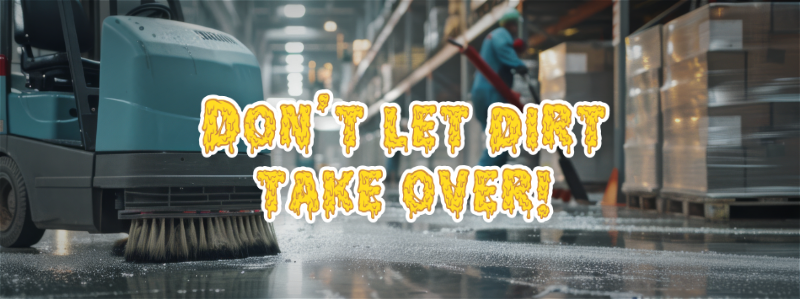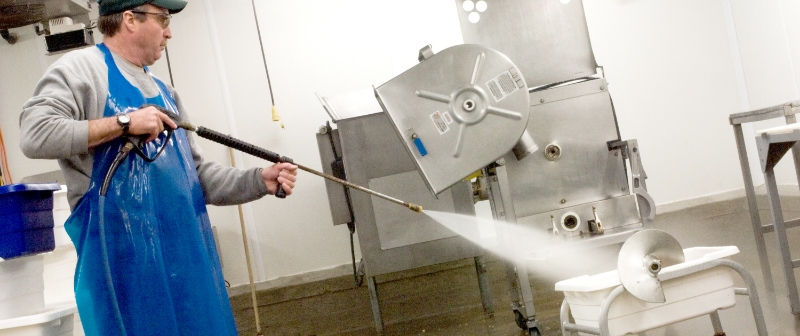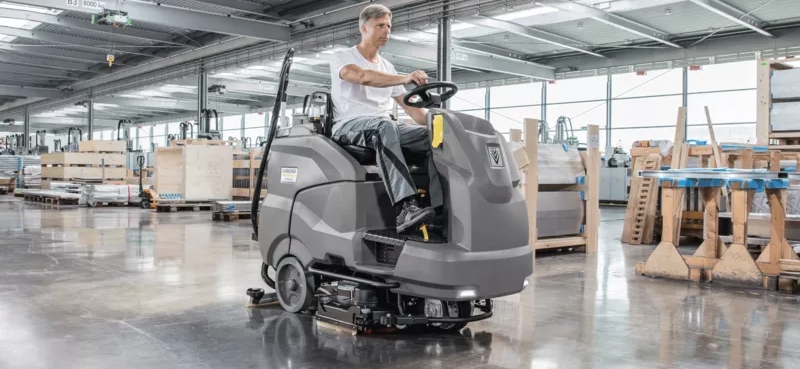Don’t let dirt take over! Pressure Washer & Floor Scrubber Maintenance Guide

Dirt, grease, and grime – they’re sticky, smelly, even gross – and they have one job at your facility: to stay put and resist every cleaning attempt, even from your pressure washer. In fact, you may be helping them stay put!
“Wait a sec!” you say. ‘We use pressure washers and floor scrubbers regularly.” Great! But if you don’t regularly maintain and service your equipment, performance can steadily decline over time and cost you. The result? Sub-standard cleaning that you may not even realize is happening until the cracks ooze dirt and your shoes stick or slip to the floors. Are you OK with that?
Today, companies are working hard to save money, and that includes seeking to extend equipment life. But there comes a point where your machines need help and ignoring it can cost you. Here are 8 critical warning signs that your cleaning equipment is failing to evict the dirt.
Pressure washer – Warning Signs
Did you know? Regular maintenance significantly extends the life of a pressure washer, potentially doubling it or more, depending on usage and initial quality.


Water pressure decreases.
If adjusting settings and cleaning the nozzle doesn’t work, it may be a dying pressure washer pump, worn seals, damaged valves, or more, which can lead to complete failure if not fixed.

Whining, grinding, or rattling.
Such sounds signal tired pistons, bearings or other moving parts. Don’t ignore them – or more damage could occur.

Strange leaks and drips.
Water or oil leaking from the pump housing, fittings or connections, or any sign of leakage warns of a compromised seal or damaged component. Let it go, and problems can multiply.

Pump cycles on and off repeatedly.
May result from a faulty unloader or pressure regulator, air leaks or insufficient water supply, increasing wear & tear on the motor or other components until they fail.
Floor scrubber
Did you know? Regular maintenance can significantly extend the life of a floor scrubber, potentially doubling it from the average lifespan of 5-10 years.


Water left behind (or streaking)
Signals damaged or worn squeegee blades. These can wear out or become damaged, creating hazardous conditions.

Reduced suction power
Likely means a blocked, split, or kinked hose that can drastically reduce the suction power – which means water left behind.

Not cleaning effectively
Can indicate pad or brush problems. A damaged, old or worn pad or brush won’t clean effectively and can even damage the floor.

Restricted water flow
Can come from a blocked solution filter which restricts water flow, and prevents dispensing the necessary water & solution mix, resulting in sub-par cleaning.
The good news? There are solutions!
To keep your machines running effectively, it’s important to focus on maintaining existing equipment and implementing preventive practices that include regular inspection of your equipment and ensuring staff members are trained on proper usage and what to look for.
It’s also smart to explore affordable repair options that can help minimize costs and keep operations running smoothly. Prioritizing essential equipment repairs and exploring cost-saving strategies like leveraging local repair shops and considering used or rental equipment can benefit your bottom line – while ensuring the dirt, grime and gook gets evicted!
When in Doubt, Give Us a Shout
We offer a variety of maintenance plans – and service and repair all brands, whether or not you purchased your equipment from us. Plus we have the largest selection of Parts & Accessories in Northern California!
With over 40 years of service expertise in the industrial cleaning & sanitizing industry, our extensive cross-functional industry knowledge means we know the challenges you face in your business and are here to come up with cost-effective solutions. Call or contact us for more information about how you can keep your equipment running right.

